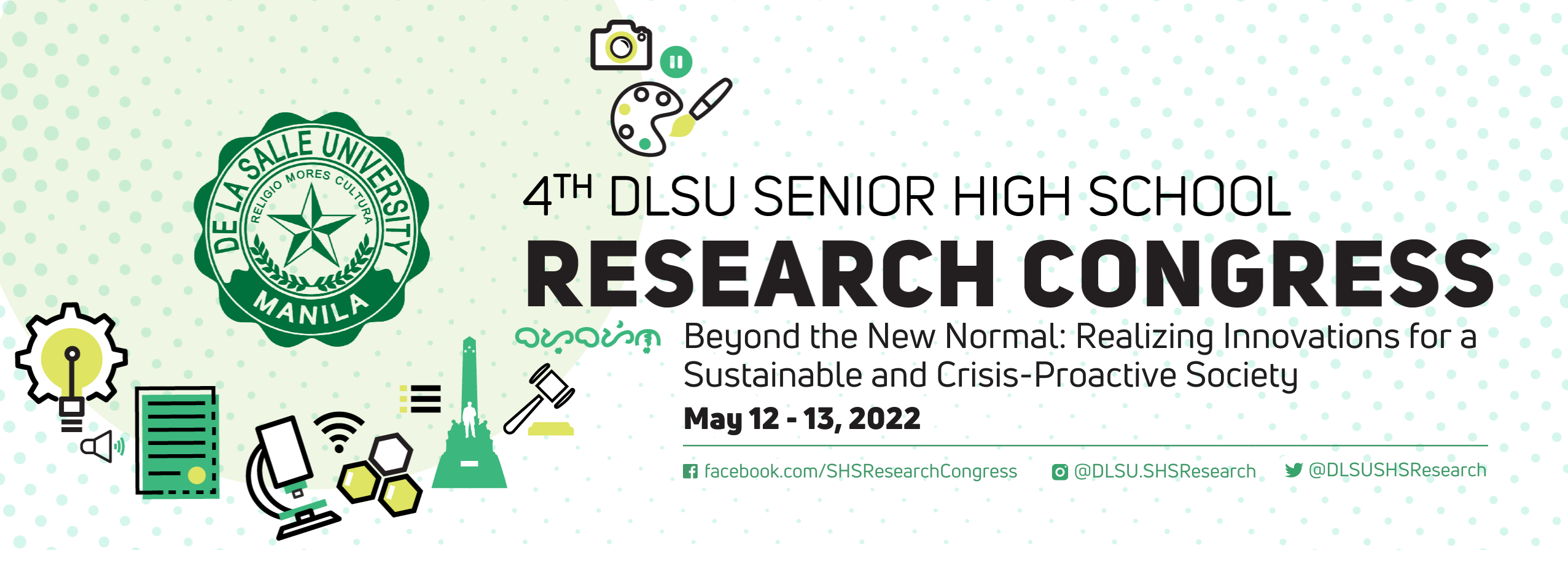Temperature Check: The Importance of Hope and Concern on Climate Change Behavior among Senior High School Students in the Philippines
Document Types
Paper Presentation
Research Theme (for Paper Presentation and Poster Presentation submissions only)
Living Culture and Contemporary Societies (LCS)
Research Advisor (Last Name, First Name, Middle Initial)
Wilfred Luis L. Clamor
Start Date
12-5-2022 1:00 PM
End Date
12-5-2022 3:00 PM
Abstract/Executive Summary
Anthropogenic climate change is climate change caused by human actions and behavior. Most of its effects will only be felt worldwide by 2050, when the current generation of young people will be global leaders. Thus, this study aimed to understand the climate change behavior and its determinants (perception, hope, and concern) of senior high school students in the Philippines and their relationship to a student’s strand (STEM, ABM, HUMSS) and gender. Data was gathered through an online cross-sectional survey answered by 205 participants, and ANOVA, Pearson's correlation, and meditation analysis were used to analyze the data. The study found that students had high levels of climate change behavior, perception, hope, and concern across all strands. The study also found a significant correlation between all variables, except between perception and behavior. Finally, the results showed that climate change hope and concern play a mediating role between climate change behavior and perception. In summary, students regardless of strand and gender had high levels of climate change behavior and its determinants.
Keywords
anthropogenic climate change; behavior; hope; concern; perception
Temperature Check: The Importance of Hope and Concern on Climate Change Behavior among Senior High School Students in the Philippines
Anthropogenic climate change is climate change caused by human actions and behavior. Most of its effects will only be felt worldwide by 2050, when the current generation of young people will be global leaders. Thus, this study aimed to understand the climate change behavior and its determinants (perception, hope, and concern) of senior high school students in the Philippines and their relationship to a student’s strand (STEM, ABM, HUMSS) and gender. Data was gathered through an online cross-sectional survey answered by 205 participants, and ANOVA, Pearson's correlation, and meditation analysis were used to analyze the data. The study found that students had high levels of climate change behavior, perception, hope, and concern across all strands. The study also found a significant correlation between all variables, except between perception and behavior. Finally, the results showed that climate change hope and concern play a mediating role between climate change behavior and perception. In summary, students regardless of strand and gender had high levels of climate change behavior and its determinants.


